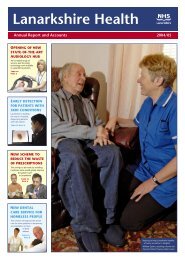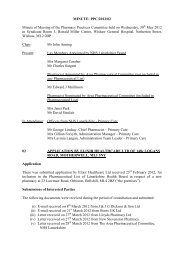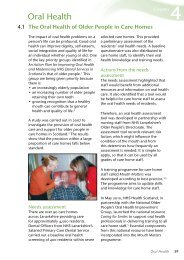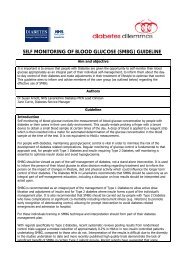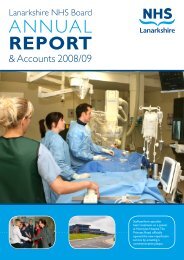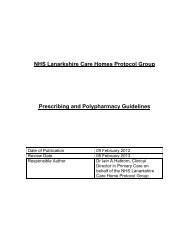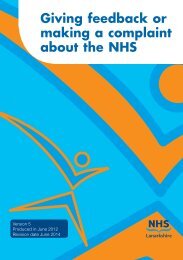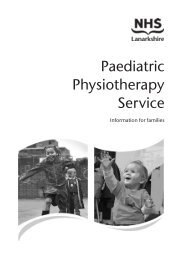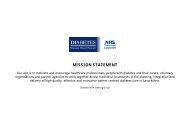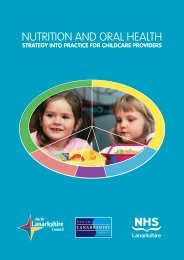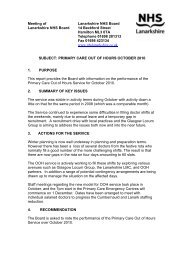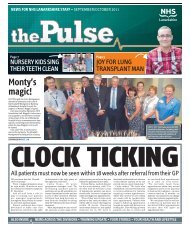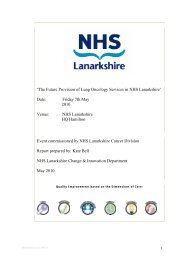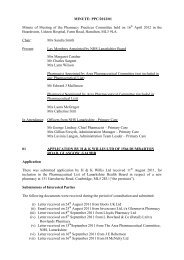Palliative Care Guidelines - NHS Lanarkshire
Palliative Care Guidelines - NHS Lanarkshire
Palliative Care Guidelines - NHS Lanarkshire
- No tags were found...
Create successful ePaper yourself
Turn your PDF publications into a flip-book with our unique Google optimized e-Paper software.
<strong>Palliative</strong> <strong>Care</strong> <strong>Guidelines</strong>: DepressionManagementGeneral• In mild depression, psychological support can be as effective as medication.• Adequate pain control may improve depressive symptoms significantly.• Spiritual distress may be a component of depression, or distinct from it.• Consider supportive psychotherapy or cognitive behavioural therapy.• Patients with severe depression and/or suicidal ideation are uncommon but should be referredto psychological medicine / psychiatry for assessment.Medication• There is little difference in efficacy between antidepressants.• Consider side effects and any co-morbid illnesses; check for drug interactions.• A current or previously effective antidepressant should be used unless contraindicated.Selective serotonin reuptake inhibitors (SSRI)o Sertraline:• 1st choice if recent cardiac event; normal dose in renal failure.o Citalopram: tablet and oral suspension• few drug interactions; useful for agitated depression/ anxiety; relatively safe if patient isat risk of seizures.o Fluoxetine:• long acting so low withdrawal risk; many drug interactions so may not be suitable inpalliative care patients.Side effects:• nausea, vomiting, anorexia, dyspepsia, diarrhoea.• risk of gastrointestinal bleeding – avoid or use with caution if history of GI bleeding,patient over 80 or taking NSAID/ aspirin.• insomnia, sweating, impaired sexual function.• vivid dreams, agitation, hyponatraemia.Mirtazapine• tablet and oro-dispersible tablet.• sedative, particularly at lower doses; appetite stimulant.• well tolerated in the elderly and patients with heart failure or diabetes.Tricyclic antidepressantso Amitriptyline: also treats nerve pain.o Lofepramine: better tolerated than other tricyclics.Side effects:• avoid if cardiac disease or risk of seizures.• dry mouth, hypotension and confusion limit dose.• sedative/ anxiolytic action may be helpful.Practice pointAntidepressants should be withdrawn gradually, if possible.ResourcesProfessionalhttp://www.depression-primarycare.org/clinicians/toolkits/materials/Patienthttp://www.patient.co.uk/Key reference1. Lloyd-Williams M. Diagnosis and treatment of depression in palliative care. European J Pall <strong>Care</strong> 2002; 9(5): 186-8Further reading: http://www.palliativecareguidelines.scot.nhs.uk2 Issue date: January 2009 Review date: March 2012 © <strong>NHS</strong> Lothian



